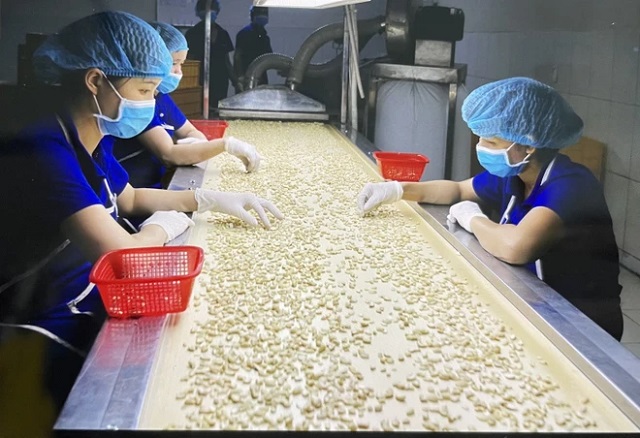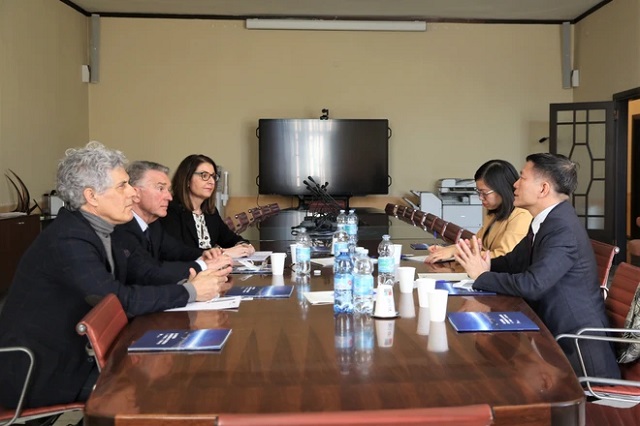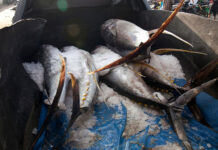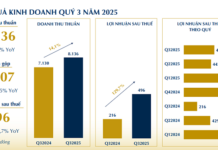
AI-generated image by Leonardo. (Source: Vietnam+)
|
Recently, many Vietnamese businesses have encountered various risks when conducting export business with partners in the EU and US markets.
The reason is that many export companies tend to be subjective, leading to vulnerabilities in access, contract drafting, and being trapped in trade fraud, deception, or legal issues.
Increase in international trade fraud
The Vietnam Trade Office in some European countries has warned of fraud and risks when Vietnamese businesses engage in export business with partners in these markets. Despite the warnings from the Trade Office through various channels, the number of fraud cases has not decreased.
In particular, the Vietnam Trade Office in the Netherlands has warned of fraud cases online, especially regarding petroleum products in this market.

Processing and exporting cashews. (Photo: Hong Nhung/TTXVN)
|
Fraudsters often create fake websites with completely fabricated information, or they impersonate import-export companies or companies providing services for renting fuel tankers that actually do not exist. The contact point is usually a mobile phone number or an internet phone number (a number from a 4G sim).
Exploiting the belief that the Netherlands is a developed country with a strict legal system and reputable businesses, some Vietnamese companies, when they see contracts with attractive terms, rush to prevent missing opportunities without thoroughly verifying information about their partners.
Even when these businesses intend to verify the legal status of their partners, they provide information through copied business registration licenses extracted from authorized or independent third-party agencies, but in reality, it cannot be verified because the licenses are not genuine.
Similarly, the Vietnam Trade Office in Spain has received reports from several Vietnamese businesses engaged in exporting cashews and pepper about Spanish companies that claim that the goods of Vietnamese businesses do not meet quality standards at the destination port or experience losses due to a decrease in local market prices, leading to a failure to comply with the contractual terms, specifically delays and sluggishness in payment for goods. This has caused difficulties, loss of time, and warehousing costs for Vietnamese businesses.
Vietnamese businesses remain subjective
According to the Ministry of Industry and Trade, there are many reasons leading to fraudulent business practices. Specifically, Vietnamese businesses tend to be subjective, have vulnerabilities in access, contract drafting, and lack strict commitment.
Although many Vietnamese export industries are currently leading the world, most Vietnamese businesses are small and medium-sized enterprises with limited experience in international trade disputes.
 The Vietnam Trade Office in Italy works with the Port Authority of La Spezia in a case of 100 containers of cashews exported by Vietnam that lost control of original documents. (Photo: Duong Hoa-Hai Linh/TTXVN)
|
There are also cases where some businesses are not intentionally fraudulent but slow in payment. Moreover, Vietnamese businesses have placed too much trust in intermediaries: drafting very simple contracts, lacking many important terms, but the businesses still accept them.
Even more concerning, businesses have ignored the step of verifying their partners, which is a mandatory requirement when dealing with new partners.
Online fraud is not only happening in the Middle East and Africa but is becoming increasingly common, even in large and reputable markets such as the US, the Netherlands, Italy, and Norway.
Recommendations for businesses
To limit risks in international trade transactions, the Ministry of Industry and Trade has repeatedly warned Vietnamese businesses to be cautious and negotiate payment terms carefully to ensure maximum safety when doing business with foreign companies.
In order to ensure safety in international transactions, the Authority of Information Security (Ministry of Information and Communications) also advises businesses, especially small and medium-sized businesses with little experience in accessing foreign markets. When receiving strange requests, Vietnamese businesses need to verify the information of their partners clearly; they should not hastily believe in attractive offers from newly acquainted customers in cyberspace.
In addition to the Vietnam Trade Office in European and American markets, businesses can contact embassies of countries in Hanoi and Ho Chi Minh City for support. Moreover, hackers can invade businesses’ email systems to impersonate transactions and tamper with bank account information on invoices.
If a business receives an email from a long-time customer notifying a change in bank account numbers, they should be vigilant as companies in Europe rarely change bank account numbers, even when changing owners.
Furthermore, the Ministry of Industry and Trade has promptly directed functional units under the Ministry and the Vietnam Trade Office abroad to coordinate with relevant agencies to regularly update information and warnings regarding common or emerging forms of fraud and trade deception.
At the same time, the Ministry strengthens guidance and enhances knowledge in international trade and finance, and provides training in international trade skills for localities and Vietnamese businesses, especially small and medium-sized enterprises, to enhance the capacity of businesses in international trade transactions./.





































